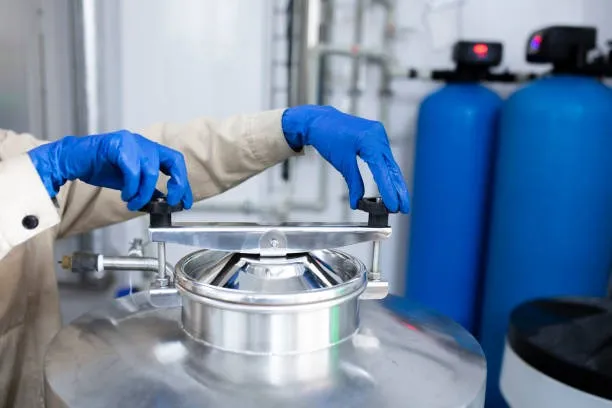
Boiler Repair in Lancaster City, PA
When your boiler falters in Lancaster City, PA, fast, accurate repair keeps your home safe and comfortable through cold winters. Boilers in Lancaster homes—many of which are older, hydronic systems or radiant setups—face unique stresses from seasonal temperature swings, hard water, and aging controls. Our boiler repair coverage explains common faults, how we diagnose and fix them, what parts and timelines to expect, and practical steps to prevent future breakdowns.
Why timely boiler repair matters in Lancaster City
Lancaster experiences long, chilly winters and older housing stock with diverse heating systems. A small boiler issue can quickly escalate into a no-heat emergency, frozen pipes, or unsafe combustion conditions. Prompt repair restores comfort, prevents costly secondary damage, and ensures safe boiler operation in your home.
Common boiler repair issues in Lancaster City, PA
The most frequent problems homeowners request in this region include:
- Ignition and pilot failures: Faulty ignitors, clogged pilot orifices, or intermittent flame sensing.
- Leaks and corrosion: Tank, piping, or valve leaks caused by age, thermal expansion, or mineral buildup from hard local water.
- Pressure and expansion problems: Low or high system pressure, faulty expansion tanks, or relief valve activation.
- Control and thermostat faults: Malfunctioning control boards, relays, or inaccurate thermostats leading to short cycling or no heating.
- Circulator pump failures: Worn bearings or air-bound pumps that reduce hot water flow in radiators and baseboards.
- Blocked vents and combustion issues: Chimney or vent blockages that affect draft and efficiency, increasing safety risk.
How we diagnose your boiler problem
A structured diagnostic process helps find the root cause quickly and avoid repeated callouts:
- Initial safety checks: Verify combustion safety, carbon monoxide levels, and power/gas shutoffs.
- System history and symptom review: Ask about recent noises, leaks, pressure readings, and thermostat behavior.
- Visual inspection: Check burners, heat exchanger, piping, valves, vents, and visible corrosion or soot.
- Electrical and control testing: Test ignitors, flame sensors, control boards, and thermostats for continuity and proper signals.
- Hydronic system checks: Measure boiler pressure, expansion tank function, circulator performance, and air in the system.
- Operational tests: Run the boiler through cycles to reproduce the problem and confirm diagnosis.
Typical step-by-step repair procedures
Repairs follow a clear, safety-first workflow so you know what to expect:
- Secure and isolate system: Turn off power and fuel supply when appropriate; confirm safe working conditions.
- Replace or clean components: Clean burners and pilot assemblies, replace failed ignitors, sensors, or valves with authorized parts.
- Repair leaks and piping: Tighten fittings, replace valves, or install new sections of piping; address corrosion at the source.
- Restore hydronic balance: Repressurize system, bleed air from radiators, and test expansion tank and pressure relief devices.
- Control and software updates: Replace faulty control boards or update settings for optimized operation.
- Safety and performance testing: Run combustion and efficiency tests, verify CO levels, and confirm stable pressure and temperature control before leaving.
Authorized parts replacement and quality assurance
We use manufacturer-authorized replacement parts for compatibility and long-term reliability. Authorized components preserve system warranties and ensure proper fit and performance—especially important for older boilers common in Lancaster City. All replaced parts are installed to manufacturer specifications and tested under load.
Expected timelines and what affects repair duration
Most diagnostic visits take a single visit with repairs completed the same day when parts are on hand. More extensive repairs—such as heat exchanger replacement, major piping repairs, or when specialized parts are required—may need additional time for ordering and installation. Factors that influence timelines:
- System age and accessibility
- Need for specialty parts or obsolete components
- Extent of piping work or asbestos/permit considerations in older homes
- Weather and seasonal demand affecting parts availability
Technician qualifications and certifications
Boiler repair in Lancaster City should be handled by licensed, trained technicians. Our technicians are:
- Licensed to perform HVAC and boiler work in Pennsylvania (licensed in PA)
- NATE and EPA certified where applicable for safe combustion and refrigerant handling
- Trained on multiple manufacturers and experienced with both modern high-efficiency boilers and older hydronic systemsTechnicians follow industry best practices for safety, combustion testing, and documentation to ensure the repair meets code and manufacturer standards.
Warranty and safety information
- Manufacturer warranties on replaced parts typically remain valid when authorized parts are used and installed per guidelines. Workmanship warranties on repairs provide added confidence in service quality.
- Safety protocols include combustion air verification, CO testing, pressure relief valve checks, and clear documentation of any safety concerns discovered during service.
- If you suspect a gas leak or detect carbon monoxide, shut off the fuel source if it is safe to do so, ventilate the area, and leave the premises immediately before contacting emergency services.
Preventive tips to avoid future boiler breakdowns
Regular care reduces emergency repairs and extends system life:
- Schedule annual boiler tune-ups before the heating season to clean burners, test controls, and check combustion efficiency.
- Bleed radiators and monitor system pressure monthly; correct low pressure before the cold snap.
- Inspect venting and chimneys for blockages, bird nests, or soot buildup.
- Consider water treatment or filtration in hard water areas to reduce scale and corrosion.
- Replace older thermostats with programmable or smart controls for improved operation and energy savings.
- Keep the boiler room clear and maintain safe clearance around the unit for airflow and service access.
Boiler Repair in Lancaster City, PA focuses on restoring safe, efficient heat quickly while addressing root causes so you get long-term reliability. With local expertise in Lancaster’s housing and climate challenges, authorized parts, certified technicians, and clear safety standards, you can expect thorough diagnostics, documented repairs, and practical maintenance guidance to keep your system running through the coldest months.


Enjoy flexible financing options that make upgrading or repairing your HVAC system easy and budget-friendly.










